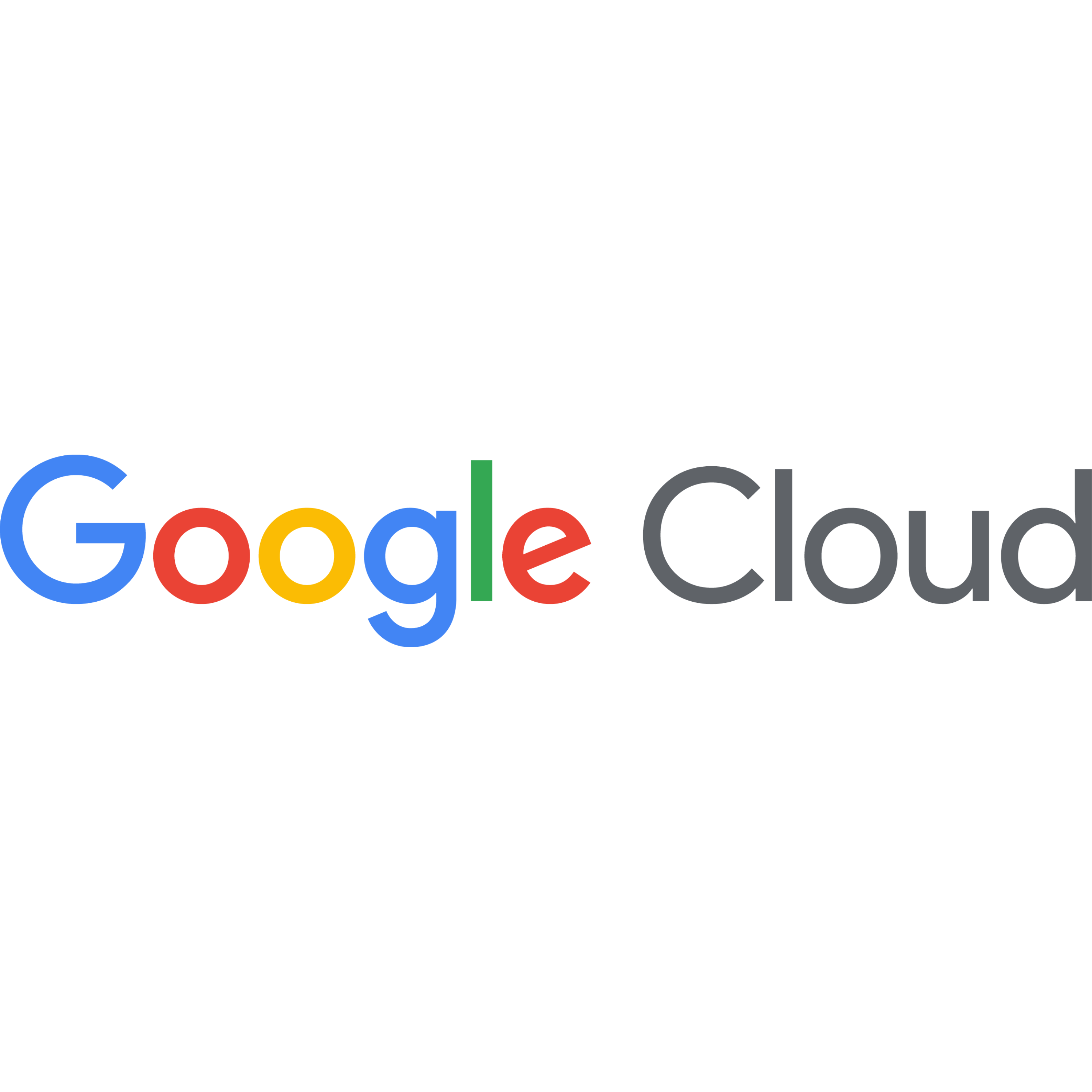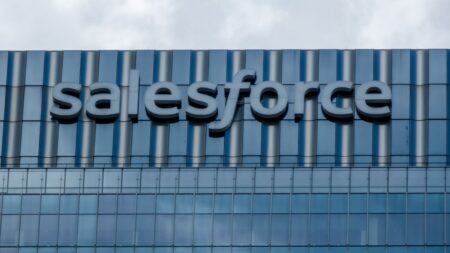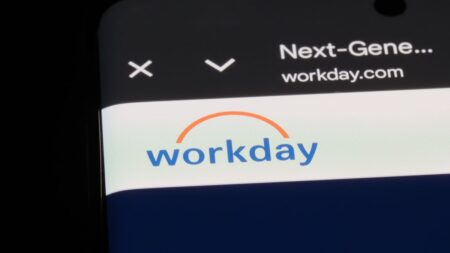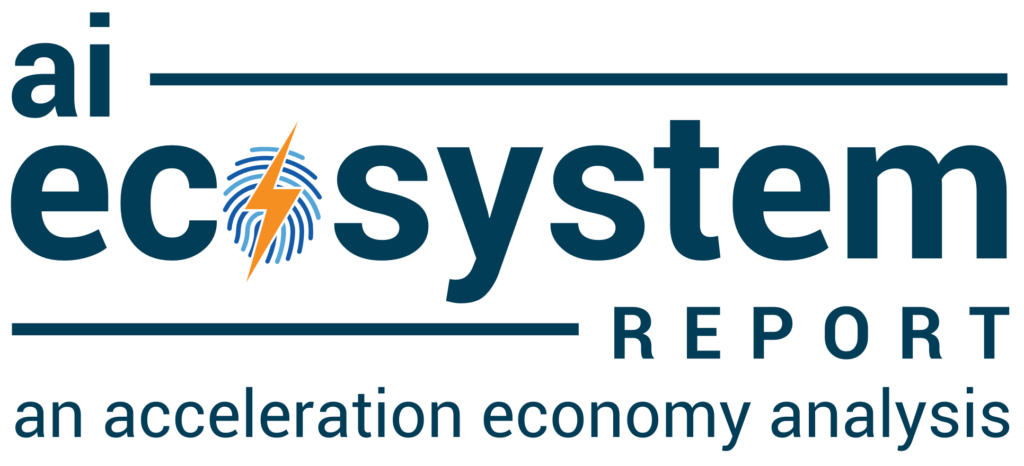
Acceleration Economy’s regular coverage of Oracle — a long-standing and ascending member of the Cloud Wars Top 10 — has expanded into new areas in recent quarters and months as the tech stalwart went all in on AI.
With a steadfast commitment from Oracle Chairman Larry Ellison to develop transformational technologies using GenAI, the company has staked out a leadership position in the AI sector as well: it ranks number seven on the Acceleration Economy list of AI Ecosystem Top 12 Pioneers.
Company Background
Since launching in 1977, Oracle has become one of the world’s most profitable and innovative technology companies, led by Ellison, its charismatic co-founder.
Today, the company employs over 164,000 people and serves over 430,000 customers in 175 countries. The company holds over 19,000 patents and reported revenue of $14.3 billion in Q4 2024. A massive $12.5 billion in AI deals were signed in that same quarter.

With a wide-ranging product portfolio, it’s difficult to pin down the company’s most important products. However, the most critical include Oracle Database software, the company’s cloud application software, which includes Oracle Fusion Cloud ERP and Oracle CRM, and its OCI cloud service.
The company was an early cloud service provider and is currently undertaking an aggressive AI strategy, following the trajectory of its cloud competitor and new best buddy Microsoft, by partnering with multiple organizations that at other times, and in other business areas, are fierce competitors. Another case in point: Google Cloud.
AI Tech Innovations
Oracle’s GenAI commitment is embodied in products across finance, supply chain, HR, customer experience, healthcare, and more. However, for this profile, we’ll focus on three of the most significant innovations: Oracle Database 23ai, Oracle Cloud Infrastructure (OCI) Generative AI, and Oracle AI for Fusion apps. Ultimately, Oracle is leading the market in enterprise AI because it has incorporated the technology across its expansive product portfolio.
Oracle Database 23ai: Launched in May 2024, Oracle Database 23ai represents a key differentiator in Oracle’s AI strategy. Building on its widely popular database architecture, 23ai focuses on three core areas: AI for data, data-driven application development, and safeguarding mission-critical data assets.
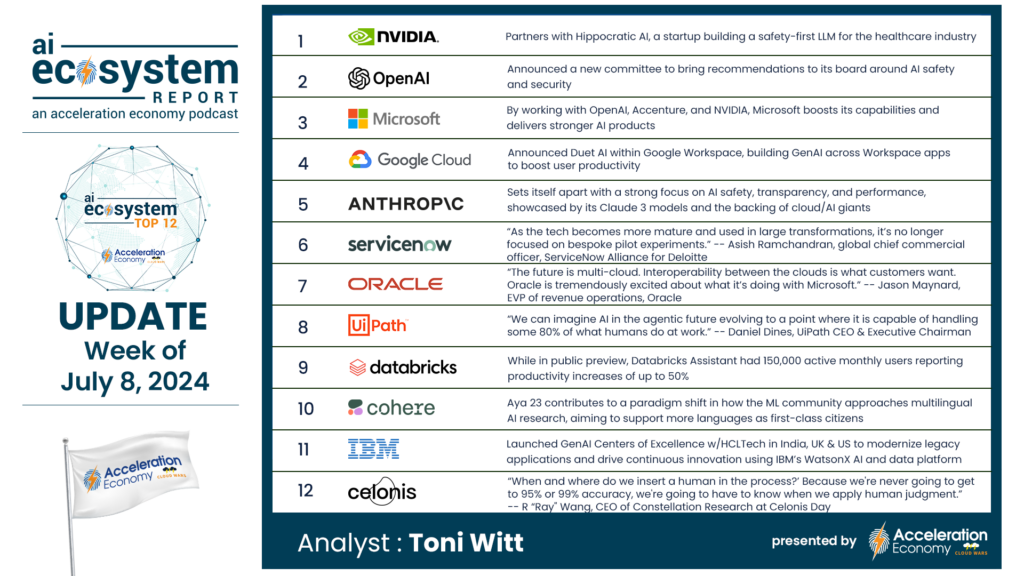
23ai makes it easier for developers to integrate AI functionality into applications. Beyond this, the introduction of AI and GenAI capabilities enable more advanced insights, natural language interactions, and AI vector search to find data objects quickly and efficiently.
Oracle Cloud Infrastructure (OCI) Generative AI: The addition of GenAI to OCI saw Oracle launch its standout GenAI-as-a-Service, which enables users to access, integrate, and fine-tune a range of LLMs for various use cases such as chat, text generation, summarization, and embedding text.
One particularly significant element of the technology is its focus on privacy and governance. Oracle was quick to roll out a GenAI offering that, unlike some of its competitors, gave users ultimate control and ownership of their data.

Oracle AI for Fusion Applications: Perhaps the most transformative AI innovation Oracle has delivered since the onset of GenAI is the introduction of AI and GenAI capabilities to its Fusion apps. This enables users already benefiting from the applications to add the latest AI capabilities to their workflows.
Oracle AI for Fusion impacts outcomes across the board including human capital management, finance, sales, service, supply chain management, and marketing. For example, with GenAI embedded in Oracle Fusion Cloud HCM, users can quickly create summarizations for rapid performance reviews.
Strategic Partnerships
Oracle has made a series of high-profile partner announcements that redefine how the company, and the tech ecosystem, functions in the AI era. Very early in its GenAI journey, Oracle announced that it had partnered with Cohere to deliver its GenAI services.
At the time, Cohere, though not unknown, was relatively understated despite having one of the original creators of GenAI technology, Aiden Gomez, as its founder and CEO. The company provides market-leading foundational models as well as a GenAI platform. While Oracle customers benefit from access to Cohere’s transformative architecture, Cohere will train, build, and deploy its GenAI models on OCI.
Another strategic partnership positions Oracle as a leader not just in GenAI technology but in the trajectory of AI governance and compliance as well: it’s working with NVIDIA to deliver accelerated computing and GenAI services that adhere to digital sovereignty.
Finally, and most significantly, at the end of 2023, Oracle and Microsoft entered into an expanded partnership that included the delivery of Oracle Database Services on OCI in Microsoft Azure. Since the announcement, Oracle has also entered into a partnership with OpenAI to extend the Microsoft Azure Al platform to OCI, to provide the company with additional computing power.
Key Customer Wins
Oracle’s customer base includes some of the world’s most recognizable companies, including Phillips, Netflix, Intel, and Microsoft. However, for this analysis, we’ll highlight a particularly significant AI success story.
Cerebriu is a Danish healthcare startup. The company uses GenAI to streamline MRI exams and ensure accurate image capture. Cerebriu chose Oracle to deliver scalable computing infrastructure to support its expansion plans.
In line with its budget and operational limitations, the company chose to run OCI Compute bare metal instances with NVIDIA GPUs. Using the technology, Cerebriu enhanced parallel processing by 3X.
“As we create generative AI solutions in radiology to improve clinical care and improve patient outcomes, OCI provides performance and economic benefits for training our data-intensive models,” said Akshay Pai, Co-Founder and CTO of Cerebriu. “For the same price, we get more GPU compute and memory for results that are 3X faster than AWS and Azure.”
And in so doing, Oracle helps Cerebriu keep pace with the rapid innovations occurring around GenAI. A recent Acceleration Economy reader survey found the highest percent of respondents, 52%, say the pace of GenAI innovation is “frenetic.”
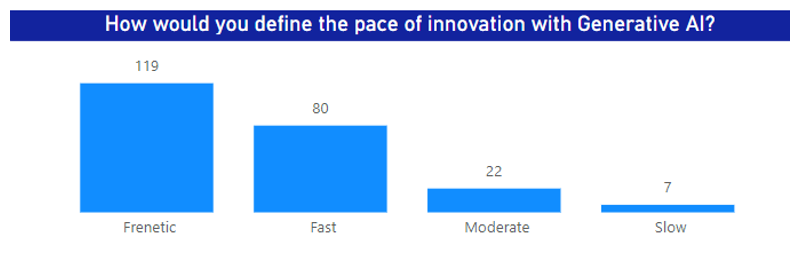
Analyst Take
Larry Ellison was quick off the mark with GenAI, a stance which some industry observers interpreted as a “legacy moment” where he would extend his remarkable industry track record by seizing leadership in another technology category.
To that end, the company has forged ahead with an unprecedented roll-out across the breadth of its product portfolio. Integrating GenAI with Fusion apps is critical to this strategy because it enables millions of users to access AI outcomes in situ, without navigating away from a familiar software environment.
In addition to its tech initiatives, only a company with the legacy and breadth of Oracle can hope to forge the partnerships it has to date as it strives to dominate in the GenAI market. All these factors position Oracle as a leader spanning the Cloud Wars and the AI ecosystem.





